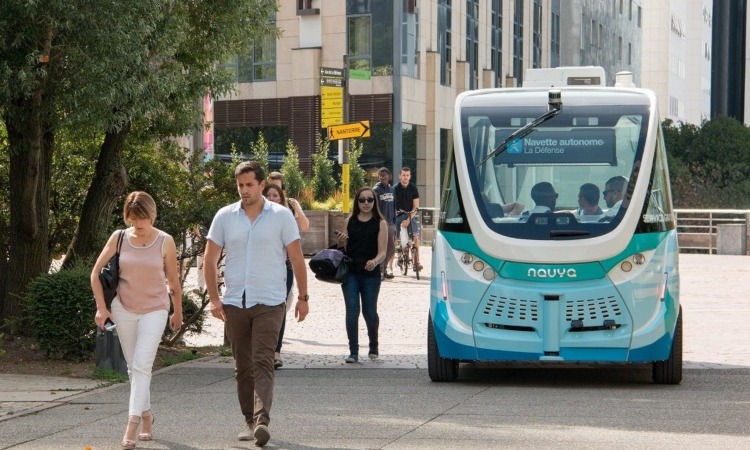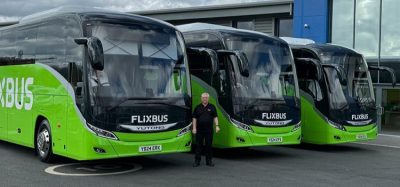New project to advance large-scale roll-out of user-centric autonomous vehicle services
- Like
- Digg
- Del
- Tumblr
- VKontakte
- Buffer
- Love This
- Odnoklassniki
- Meneame
- Blogger
- Amazon
- Yahoo Mail
- Gmail
- AOL
- Newsvine
- HackerNews
- Evernote
- MySpace
- Mail.ru
- Viadeo
- Line
- Comments
- Yummly
- SMS
- Viber
- Telegram
- Subscribe
- Skype
- Facebook Messenger
- Kakao
- LiveJournal
- Yammer
- Edgar
- Fintel
- Mix
- Instapaper
- Copy Link
Posted: 6 December 2022 | Intelligent Transport | No comments yet
The European Union’s new project aims to foster the integration of autonomous vehicles into cities’ public transport networks with on-demand services, in order to allow for more sustainable, accessible and inclusive mobility.


Credit: UITP
The International Association of Public Transport (UITP) has announced that the European Union (EU) has launched a new project, ULTIMO, which seeks to set the foundations and deploy the very first economically viable, large-scale, on-demand and user-oriented autonomous vehicle (AV) public transportation services.
By taking a holistic approach to AV deployment that considers all elements in a cross-sector business environment, ULTIMO aims to unlock the integration of AVs into cities with on-demand and door-to-door services that will allow for more sustainable, accessible and inclusive mobility.
Building upon the experience of past projects like SHOW, ULTIMO will deploy large fleets in three European cities to achieve a commercial level public transportation service. The aim is to target the operation without a safety driver on-board, in fully automated mode and with the support of innovative user-centric passenger services.
With Deutsche Bahn at the forefront, ULTIMO joins 23 partners from eight European countries for a period of four years. Within the project, UITP is leading dissemination and outreach activities to ensure engagement across the entire sector value chain.
“The learnings that the sector has built so far around shared automated mobility need to be now scaled up with larger fleets of AVs that are passengers centric and economically viable. Only if larger fleets of AVs are integrated into the public transport network, the benefits of automated mobility for society and environment can be truly unlocked. UITP is proud to be a partner in ULTIMO to help tackle exactly these challenges,” said Dr Henriette Cornet, UITP’s Thematic Area Leader, Automated Mobility.
Enhancing public transport using autonomous vehicle technology
The ULTIMO project will build on top of past experiences and projects, focused on tackling obstacles that are hindering large-scale AV uptake, including economical challenges. The current limited lifetime of vehicles, plus the costs of on-board safety operators and technical advancements (such as the creation and maintaining of HD maps) mean that certain economic challenges still have to be mastered.
In addition, needed changes to city infrastructure and the integration of AV services into operators’ Mobility-as-a-Service (MaaS) offerings raise important questions on how to realistically integrate AVs into public transport networks.
Furthermore, another challenge that UITP outlines in the current AV ecosystem is the lack of technical collaboration between vehicle manufacturers and fleet management providers. ULTIMO will address this challenge by bringing around the table important sector players to work together on the same deployment site, coming up with common solutions and interfaces for their technologies.
ULTIMO’s innovative transportation models are designed for a long-term sustainable impact on automated transportation in Europe, around the globe and on society. The composition of the consortium ensures the interoperability between multiple stakeholders by making adoption of new technology at minimum costs and maximum safety.
“I am very pleased that we, as consortium leader, together with 23 other partners, can ensure that we can clarify the few remaining open questions for a secured live operation in the ULTIMO project, so that the necessary conditions and questions such as demand/capacity transparency, integration into an overall transport system and economic viability can be clarified accordingly for large-scale nationwide deployment,” said Frank Klingenhöfer, CEO of DB Regio Bus.
If you liked this, you may also be interested in:
Related topics
Connected & Autonomous Vehicles, Mobility Services, On-Demand Transport, Passenger Accessibility, Passenger Experience, Public Transport, Sustainable Urban Transport
Related modes
Autonomous vehicles, on-demand
Related cities
Europe
Related organisations
Deutsche Bahn, European Union (EU), International Association for Public Transport (UITP)
Related people
Henriette Cornet








